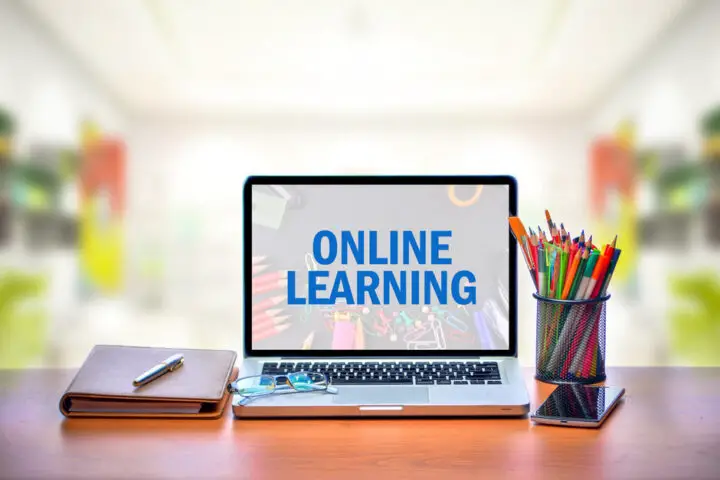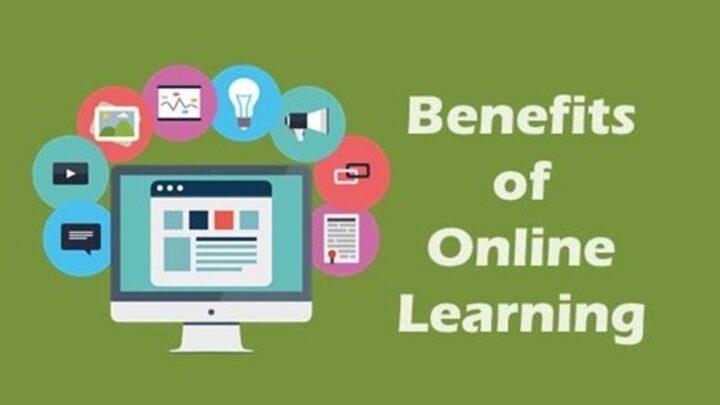Education Is Moving Online, Opening the Door to Both Benefits and Challenges

The advent of the internet has revolutionized many industries, changing the way we live our lives in the process. Almost any activity we can think of has since transitioned online. Want to find out very specific information on any given topic? No need to go down to the library and search through heaps of records and books as Google can sort through over 200 million active websites and provide answers to all your questions.
If you want to keep in touch with people from all across the world, you’ve got a ton of online tools and apps that facilitate instant communication. Managing your finances no longer requires you to visit your local bank branch because banking apps provide fast and easy access to a variety of financial services. And let’s not forget how easy it is to shop since e-commerce has entered our lives. We can do all these things and more via our internet-connected devices.
So, it should come as no surprise that teaching and learning have followed a similar path. Despite being somewhat resistant to change, the educational sector has also made notable efforts to keep up with the times and eventually carved its way into the online realm. People are a lot more open to the idea of embarking on an online learning journey than they were a few years back. The fact that the range of internet-based educational services and materials has increased considerably in recent times as well as the number of institutions engaged in online education has also contributed to the proliferation of this phenomenon. People can now advance their chemistry knowledge, prepare for exams or even earn a degree by studying online.
There’s no denying that virtual learning aligns with the needs and requirements of the new generation and the modern era we live in. However, it would be a mistake to think that learning in a fully virtual environment doesn’t have its drawbacks and challenges. As with all innovative ideas, there are both positives and negatives to this alternative method of study. So, if you want to get a full picture of what online education entails, we’ll have to take a closer look at both sides of the coin.
Unlocking a world of possibilities

If you ask online students what they like most about studying remotely they’ll probably cite convenience as the biggest advantage. Online learning brings students, teachers and educational resources together in a virtual space, regardless of physical location. Sometimes commuting or attending school physically is simply not an option. Fortunately, online classes remove geographical boundaries and other physical barriers from the equation; they ensure greater accessibility and educational inclusion by allowing people who live in remote areas or those who can’t travel to an educational institution to participate in classes from any location, as long as they have a smart device and good internet connection.
This accessibility also extends to the range of learning resources and services that students can benefit from. The internet is virtually limitless, being able to encompass a wealth of information and study materials addressing a wide variety of subjects. As time goes by, these educational resources are becoming more diversified and complex, being able to deliver the same value as in-person classes.
If convenience and the increasing variety of options don’t win you over, the financial advantages might. It’s no secret that enrolling in a traditional educational program can be quite costly. The costs are particularly high if you want to attend a private school or an elite college. Needless to say, not everyone can afford to pay their way through school. But that’s where online learning programs come into play, providing a much cheaper and highly efficient educational alternative.
Last but not least, online learning also gives students a lot more flexibility in terms of schedule and learning pace. Although many online learning programs have a fixed timetable for completing assignments, some of them allow for greater flexibility. This means you get to decide how much time you dedicate every day to your studies and when it’s best to schedule your learning sessions, so you can manage your time better and learn at your own pace, without compromising academic excellence.
The challenges that come with online learning

If online education would only have benefits and no drawbacks, there would be no students left in classrooms or campuses, as everyone would flock to the online space. However, as we’ve come to learn over the years, online classes have their fair share of challenges and problems.
For starters, a lot of students find it rather difficult to maintain their focus for extended periods of time. Standing in front of a screen and interacting with teachers and peers through online tools exclusively, or not interacting with anyone at all, makes the learning experience a lot less engaging and therefore not as appealing as one might hope.
We can also not ignore the fact that technical issues can hamper the learning process as well. Those who are not particularly tech-savvy, both teachers and students, might have trouble using certain tools and apps. And although internet connectivity shouldn’t be a problem in theory, there’s always the risk of dealing with slow internet speed or a malfunctioning device. Without adequate equipment and basic technical prowess, online learning can feel like a real hassle.

Then there’s the issue of poor time management. Online learners are faced with a different reality than students attending their own classes. The flexibility that we’ve previously mentioned also burdens them with the responsibility of managing their own schedules. Add distractions and multitasking to the picture, and you can easily see that one cannot thrive in the online learning environment without self-control and discipline.
Between the pros and the cons, it’s pretty obvious that online learning might be perfect for some but not quite right for others. But in the end, the emergence of alternative means of study enriches the educational landscape, and that’s something we should all be grateful for.
